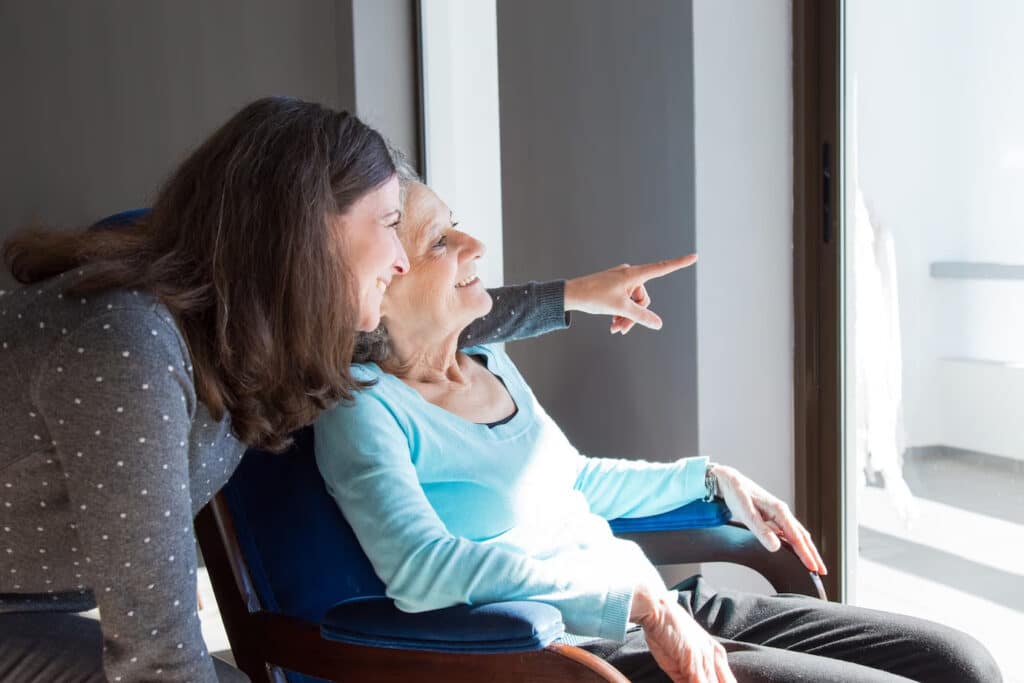Are Your Old Care Services Truly Meeting Your Needs?
Are your current old care services keeping up with your evolving needs? At Oceanview Senior Living, it’s important to periodically reevaluate your care to ensure you’re receiving the proper support. As needs shift with age, care plans must adapt in response to physical, emotional, and mental health changes. Taking an active role in your care journey ensures you receive routine services and genuinely personalized support. Communication with your providers is key, and knowing your available resources—from government support to local offerings—can make a real difference. Whether you’re assessing your health or your financial investment in care, now is the time to ask: is it working for you? At Oceanview, we help you explore better options that align with your goals, providing guidance every step of the way. Call us at 541-574-0550 to learn how your care can improve.
Understanding the Impact of Your Old Care Services
Before evaluating new paths, take time to understand what your current services offer. Your old care services should be flexible and responsive to your health status. Are you receiving regular, tailored care assessments? If your care feels static or disconnected from your day-to-day experiences, it’s time to reassess. Talking openly with your care team at Oceanview can clarify whether changes are needed. Ask questions about how services are adapted over time. Do they consider changes in mood, mobility, or cognitive function?
Review personalized support options, such as senior care plans that fit your lifestyle. Genuine care involves not only meeting current needs but anticipating future ones. By thoroughly understanding your existing services, you become better equipped to advocate for enhancements that matter most to you.
How to Contact Social Services for Elderly Care
One often overlooked area is tapping into broader support systems. Knowing how to contact social services for the elderly can open doors to valuable assistance programs. Social services are designed to connect seniors with the resources they deserve, including housing support, counseling, and health services. Many local government offices provide case managers to guide you through the process.
Oceanview can help direct you to the correct department if you are unsure where to begin. Social workers can assess your situation and recommend services tailored to your location and specific needs. This type of collaboration ensures that you’re not navigating care alone—there’s a system designed to support your well-being, and we’re here to help you access it.
Evaluating Quality Through Government-Free Services for Senior Citizens
When assessing the care you receive, it’s important to consider external resources, including government-free services for senior citizens. These services can enhance your existing care without adding extra costs. From health screenings and mental wellness programs to transportation and nutritional aid, government initiatives help fill gaps in care.
At Oceanview, we ensure that residents are informed of and connected to these vital offerings. Incorporating evidence-based care into your plan ensures that your care isn’t limited to in-house services. Instead, you benefit from a well-rounded approach integrating personal support and public aid.

Exploring the Benefits of a Tailored Approach
Recognizing Health Changes and Adapting Old Care Services
Your body and mind naturally change with time, and your care should, too. Take note of energy, mobility, sleep, or emotional patterns shifts. Identifying these changes early allows for quicker adjustments to your care. If your current old care services aren’t evolving along with you, they may no longer be the right fit.
Mood fluctuations, memory lapses, or changes in appetite might signal the need for new approaches. At Oceanview, we emphasize mental health awareness and health tracking as part of our ongoing evaluations. If something feels different, speak up—it might be time to pivot to more specialized or proactive services.
Free In-Home Help for Seniors—A Hidden Gem
Many aren’t aware that free in-home help for seniors is available. These programs support daily tasks such as meal prep, medication reminders, hygiene assistance, and light housekeeping. Government and community organizations help ensure seniors can maintain independence safely.
Oceanview can help you explore these offerings if your care setup lacks daily support. Accessing free in-home help for seniors reduces pressure on families and supplements residential services. It’s about ensuring all your needs—big or small—are met.
Financial Planning with Elderly Care Assistance from the Government
Money shouldn’t be a barrier to quality care. If affordability is a concern, you may qualify for government assistance for elderly care. These financial aid programs help cover medical expenses, in-home support, and mobility aids. Understanding your eligibility can ease financial stress while maintaining excellent care.
Oceanview assists families with identifying programs and benefits that align with their needs. We support you in exploring every opportunity, ensuring your care experience is not compromised by cost concerns. If your old care services feel limited by budget constraints, it might be time to look into assistance programs that can lighten the load.
Exploring Care Options That Fit Your Future
Healthcare innovation is reshaping what’s possible. Telehealth, mobile apps, and lifestyle coaching give seniors more control over their well-being. With these options, your care can shift from reactive to proactive, offering faster responses and greater flexibility. If your current provider isn’t offering these tools, it’s time to explore alternatives.
Ask about wellness coaching or support groups. Consider digital tracking for medications or symptoms. At Oceanview, we incorporate these new technologies into our services to help residents thrive. Change doesn’t need to be overwhelming—it can be empowering with the right team.
Make the Shift to Care That Grows With You
Choosing to upgrade your care services can feel daunting, but it’s often necessary. If your old care services no longer reflect your physical or emotional needs, making a change could significantly improve your life. Transitioning can be smooth with the proper guidance. Oceanview supports each step—helping you assess your current services, explore government options, and integrate personalized solutions.
Whether tapping into government elderly care assistance or adding free in-home help for seniors, a slight change can bring significant relief. Communication, evaluation, and openness to new resources form the foundation of better care. You deserve a service that grows with you, not one that holds you back.
Call 541-574-0550 today and find out how Oceanview can help you create a care plan that works for you.
How Do The Costs Of Moving Into A Quality Senior Care Community Compare With The Costs Of Staying At Home?Compare The Costs of Senior Living vs Staying at Home
Frequently Asked Questions
What is an example of elderly care?
Elderly care includes a wide range of services designed to support older adults in their daily lives. A typical example is assisted living, where seniors receive help with bathing, dressing, medication management, and meals. These services aim to promote independence while ensuring safety and comfort. Other examples include in-home care, adult day care, and nursing homes.
What services do seniors need most?
Seniors often need help with daily living activities, medical care, transportation, and social engagement. Many require assistance managing chronic conditions, taking medications, and preparing meals. Access to healthcare, companionship, and safe living environments are also essential. These services help seniors maintain quality of life and independence as they age.
What’s it called when you take care of old people?
The act of caring for elderly individuals is commonly referred to as “elderly care” or “senior care.” Depending on the setting, it may also be called geriatric care, aged care, or caregiving. Professional caregivers, family members, or healthcare workers may provide this care. The goal is to support older adults’ physical, emotional, and social needs.








